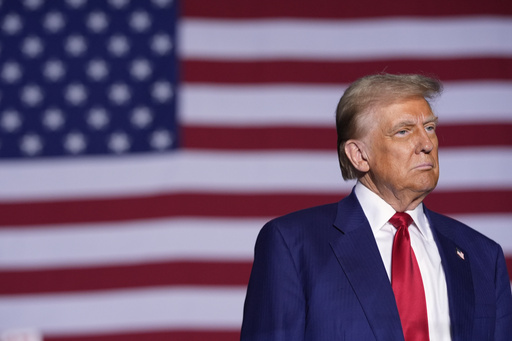WASHINGTON — Recent security developments highlight the increasing efforts by foreign adversaries, including Russia, China, and Iran, to interfere in U.S. politics as the presidential election approaches. In just the past week, incidents included a presidential candidate’s phone being hacked, a misleading video claiming ballots were burned in Pennsylvania, and national security alerts about the potential for violent unrest following Election Day.
As intelligence officials have anticipated, these actions reflect a notable escalation in foreign meddling aimed at undermining American democracy. Simultaneously, U.S. authorities, technology companies, and independent researchers are taking proactive measures to expose these threats, utilizing insights gained from previous election cycles that underscored vulnerabilities to disinformation and cyberattacks.
Despite assurances from officials that the American election system is robust enough to prevent significant foreign manipulation of election outcomes, adversarial nations are actively employing disinformation tactics and cyber operations to spread mistrust and create division among the populace.
One of the primary concerns is Russia, regarded as the leading threat in this regard. Through the use of fake websites, state-controlled media, and collaborating with unwitting Americans, Russia is disseminating misleading narratives intended to shake the public’s faith in the electoral process.
These disinformation campaigns capitalize on divisive issues such as immigration, crime, and the economy, with the overarching aim of destabilizing U.S. support for Ukraine amid ongoing conflict and counteracting American responses to Russia’s alliances with nations like China, North Korea, and Iran. Russian intelligence and security analysts have identified support for former President Donald Trump as a strategic focus, employing disinformation tactics, sometimes powered by AI, to damage the reputation of his opponent, Vice President Kamala Harris.
Among the notable tactics employed by Russia was the creation of a video that falsely implicated Harris in a car accident, as well as another video claiming ballots were destroyed in Pennsylvania—a claim quickly debunked by local officials. Russian efforts have also involved attempts to financially incentivize American influencers to propagate pro-Kremlin perspectives, with U.S. authorities recently accusing two Russian state media individuals of channeling funds to promote their narratives through right-wing influencers, who were reportedly unaware of the funding source.
Russia’s disinformation campaign is expected to persist beyond Election Day, with security officials predicting that it will exploit any allegations of voting irregularities to further obfuscate trust in the election results. A declassified intelligence memorandum anticipates potential encouragement of violent demonstrations following the vote.
Michael McFaul, a former U.S. ambassador to Russia, noted that “Putin’s aim is to foment chaos, division, and polarization in our society.” Russia has consistently denied allegations of electoral interference.
On the Iranian front, recent information points to aggressive attempts at digital interference. Iranian operatives have allegedly targeted Trump campaign associates, offering stolen communications to media outlets and the Democratic Party in hopes of creating damaging narratives. Although there have been no confirmed responses from those approached within the Biden campaign, concerns remain high regarding the aggressive cyber operations attributed to Tehran.
The U.S. Justice Department has recently charged three Iranian hackers who are still at large, linking them to a comprehensive campaign against numerous targets—including ongoing threats of violence against prominent U.S. figures. Iranian authorities have been mentioned in the context of potential post-election unrest, having also been accused of financing protests tied to global events, such as the conflict in Gaza. They maintain that they do not aim to interfere in U.S. elections.
Meanwhile, while China’s interference is perceived as less direct, it has reportedly focused on down-ballot races, choosing candidates according to their stances on critical strategic issues. The Chinese government’s classically sophisticated hacking tactics extend beyond campaign influence, aiming to infiltrate aspects of Western industries.
Recent intelligence has revealed that Chinese hackers attempted to access cellphones connected to Trump and his campaign associates, though specifics surrounding the data accessed remain unclear. The Chinese Embassy in Washington has stated that they oppose cyberattacks and were not familiar with the details of the incident.
This interference is not entirely new; international actors have a long history of meddling in U.S. electoral processes. The U.S. government’s response, particularly this cycle, has sought to mitigate these risks by publicly addressing foreign threats, including those seen during the contentious elections of 2016 and 2020 when Russian and Iranian involvement was prominently documented.
As this election cycle nears its conclusion, the awareness and response to foreign interference attempts have become increasingly sophisticated, intending to protect American democratic processes from manipulation.
